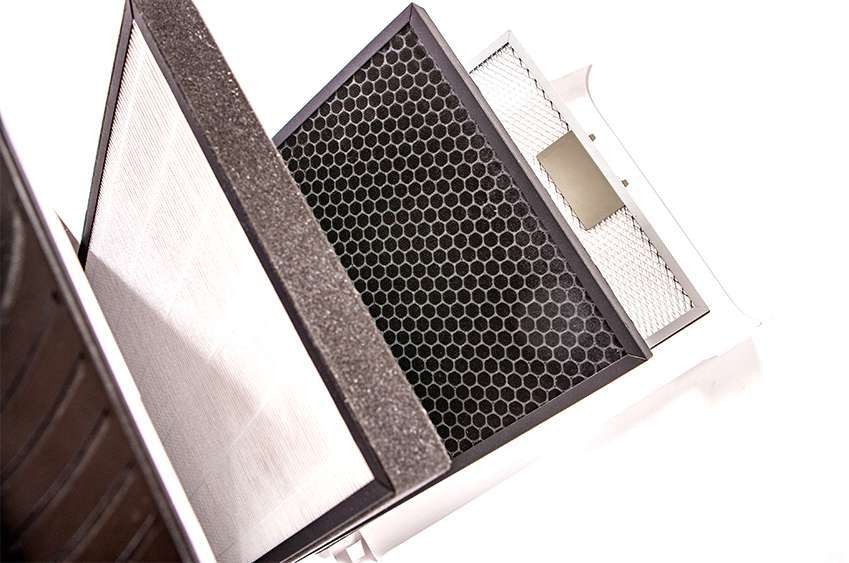When it comes to maintaining your AC unit, one of the most important aspects is the air filter. Air filters are designed to trap dust, dirt, allergens, and other particles, ensuring that the air you breathe is clean and healthy. However, with so many different types of air filters available, it can be overwhelming to choose the right one for your AC unit hence looking for air conditioning installation north las vegas nv. In this blog post, we will explore the different types of air filters, factors to consider when selecting one, the benefits of using high-quality filters, and tips for maintaining and replacing them.
Why are air filters important for your AC unit?
Air filters play a crucial role in the functionality and efficiency of your AC unit. Here are a few reasons why air filters are important:
- They improve indoor air quality by trapping dust, pollen, pet dander, and other allergens.
- They help prevent the buildup of dirt and debris on the internal components of your AC unit, which can lead to reduced performance and potential damage.
- They prolong the lifespan of your AC unit by keeping it clean and preventing the accumulation of dust and other particles.
- They contribute to energy savings by allowing your AC unit to operate more efficiently.
Understanding the different types of air filters
Fiberglass filters
Fiberglass filters are the most common and affordable type of air filters. They consist of a thin layer of fiberglass material that traps larger particles like dust and debris. While they are effective at capturing these particles, they may not be as efficient in trapping smaller particles or allergens. Fiberglass filters are best suited for households with minimal air quality concerns.
Pleated filters
Pleated filters are made of polyester or cotton and have a larger surface area compared to fiberglass filters. The pleats or folds in the filter help to trap smaller particles and improve overall filtration efficiency. They are more effective at capturing allergens and provide better air quality compared to fiberglass filters. Pleated filters are a popular choice for residential and commercial applications.
HEPA filters
High-Efficiency Particulate Air (HEPA) filters are considered the gold standard in air filtration. They are capable of trapping 99.97% of particles as small as 0.3 microns. HEPA filters are highly effective in removing allergens, dust mites, pollen, and even some bacteria and viruses. They are often used in settings where air quality is a top priority, such as hospitals or rooms with individuals who have respiratory conditions.
Electrostatic filters
Electrostatic filters use an electrostatic charge to attract and capture particles as they pass through the filter. They can be either washable or disposable. Washable electrostatic filters need regular cleaning to maintain their effectiveness, while disposable ones are replaced when they become dirty. Electrostatic filters are great for capturing smaller particles and are a good option if you’re looking for a reusable filter.
Activated carbon filters
Activated carbon filters are designed to remove odors, gases, and volatile organic compounds (VOCs) from the air. The activated carbon material has a large surface area that adsorbs these pollutants, leaving the air smelling fresher and cleaner. They are commonly used in environments with strong odors or for individuals who are sensitive to certain chemicals or fumes.
Choosing the right air filter for your AC unit
Choosing the right air filter for your AC unit depends on several factors, including your indoor air quality needs, budget, and compatibility with your system. Here are some tips to help you make an informed decision:
- Consider your indoor air quality concerns and choose a filter that can effectively address them.
- Check your AC unit’s manual or consult a professional to determine the appropriate filter size and compatibility.
- Consider the MERV (Minimum Efficiency Reporting Value) rating of the filter, which indicates its ability to trap particles of different sizes. Higher MERV ratings indicate better filtration efficiency.
- Review the filter lifespan and consider how often you are willing to replace or clean the filter.
- Take into account the airflow and pressure drop of the filter. A filter that restricts airflow too much can reduce the efficiency of your AC unit.
- Compare the cost-effectiveness of different filters, considering both the initial cost and ongoing maintenance.
Benefits of using high-quality air filters
Improved indoor air quality
Using high-quality air filters ensures that the air circulating in your home is free from dust, allergens, and other pollutants. This can greatly improve the indoor air quality, making it safer and healthier for you and your family.
Enhanced respiratory health
By removing allergens and irritants from the air, high-quality air filters can help reduce the risk of respiratory issues like asthma and allergies. This is especially important for individuals with existing respiratory conditions.
Extended lifespan of your AC unit
High-quality air filters help keep your AC unit clean and prevent the buildup of dirt and debris on its internal components. This can extend the lifespan of your AC unit and reduce the need for costly repairs or replacements.
Energy savings
When your AC unit is not clogged with dirt and debris, it can operate more efficiently, leading to energy savings. High-quality air filters allow for better airflow and reduce the strain on your AC unit, resulting in lower energy consumption.
Tips for maintaining and replacing air filters
Proper maintenance and regular replacement of air filters are essential for optimal performance. Here are some tips to help you maintain and replace your air filters:
- Check your air filter regularly and clean or replace it according to the manufacturer’s recommendations.
- Follow proper installation procedures to ensure a tight fit and prevent air leakage.
- Consider setting reminders to check and replace your air filter on a regular schedule.
- Keep your AC unit clean and free from dust and debris to prevent clogging of the air filter.
- Consult a professional if you are unsure about how to properly maintain or replace your air filter.
Common signs that your air filter needs to be replaced
Knowing when to replace your air filter is important to ensure the efficiency and effectiveness of your AC unit. Look out for these common signs that indicate it’s time to replace your air filter:
Reduced air flow
If you notice a decrease in the airflow from your vents, it may be a sign that your air filter is clogged and restricting proper air circulation.
Increase in dust and allergens
When your air filter is no longer effective, you may notice an increase in dust accumulation on surfaces or an increase in allergens circulating in the air.
Uneven cooling or heating
A clogged air filter can disrupt the distribution of cool or warm air, resulting in uneven temperatures throughout your home.
Strange odors or smells
If you notice unusual odors or smells when your AC unit is running, it could be a sign that your air filter is not effectively neutralizing odors.
Higher energy bills
A clogged air filter can cause your AC unit to work harder, leading to increased energy consumption and higher utility bills.
Conclusion
Choosing the right air filter for your AC unit is essential for maintaining good indoor air quality, prolonging the lifespan of your AC unit, and ensuring energy efficiency. Understanding the different types of air filters, considering important factors, and following proper maintenance and replacement practices will help you navigate and optimize the performance of your AC unit. By selecting the appropriate air filter and taking care of it, you can enjoy clean and healthy air in your home for years to come.

